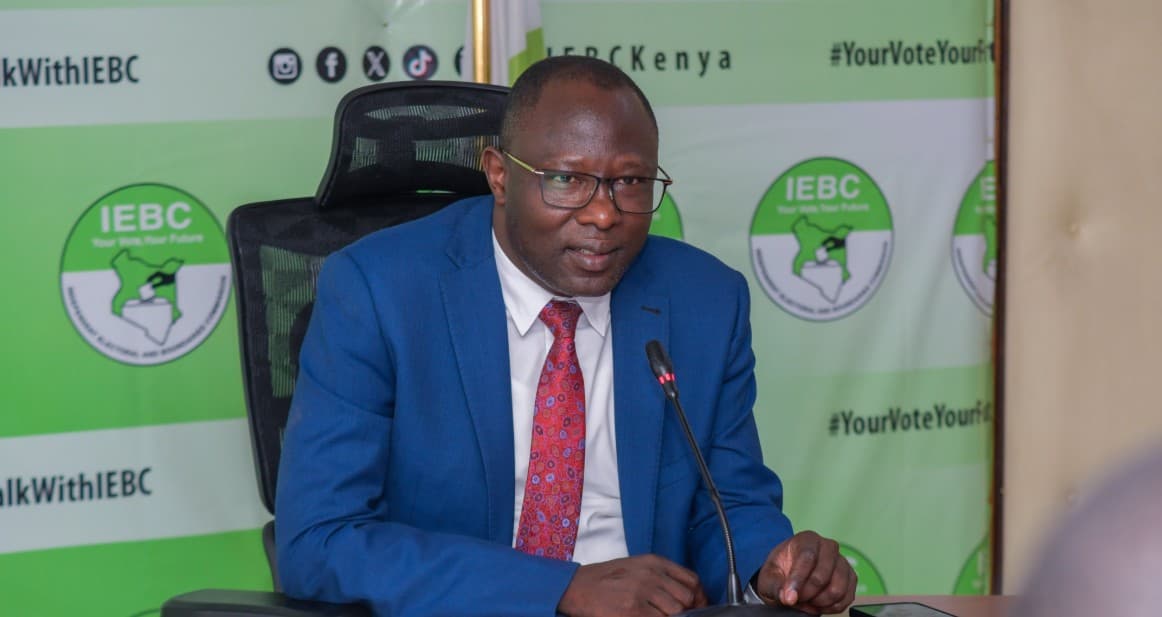We're loading the full news article for you. This includes the article content, images, author information, and related articles.
Kenya’s electoral commission cautions that eleventh-hour legislative amendments risk compromising the integrity and operational readiness for the 2027 General Election, invoking painful lessons from past chaotic polls.

NAIROBI, KENYA – With the 2027 General Election on the horizon, Kenya's newly constituted Independent Electoral and Boundaries Commission (IEBC) has issued a stern warning to Parliament against the practice of making last-minute changes to electoral laws. In a document presented to lawmakers on Monday, 3 November 2025, the commission stressed that such actions severely hamper planning, undermine public trust, and threaten the credibility of the electoral process.
The caution comes as legislators consider several pieces of legislation, including the Elections (Amendment) Bill, 2024, and the Election Offences (Amendment) Bill, 2024, which stem from the National Dialogue Committee (NADCO) report. The IEBC, now under the leadership of Chairperson Erastus Edung Ethekon who was appointed in June 2025, is racing to prepare for the upcoming polls after a prolonged period without commissioners, a vacancy that delayed crucial activities like boundary delimitation.
The IEBC’s warning is deeply rooted in Kenya’s turbulent electoral history. The commission explicitly referenced the findings of the 2008 Independent Review Commission, famously chaired by South African Judge Johann Kriegler, which investigated the flawed and violent 2007 General Election. A key recommendation from the Kriegler Report was that all substantive legal reforms should be concluded at least two years before an election to allow for adequate preparation, voter education, and implementation.
“This tendency [of late amendments] upsets the recommendations of the Kriegler Commission, which said legal reforms ought to be undertaken at least two years before the General Election,” the IEBC stated. This principle is not merely a Kenyan lesson; it aligns with global best practices. The Venice Commission's Code of Good Practice in Electoral Matters, an international benchmark, similarly advises that fundamental elements of electoral law should not be amended less than one year before an election to ensure stability and fairness.
Recent history provides stark reminders of the consequences of ignoring this advice. Ahead of the contentious 2017 repeat presidential election, the ruling Jubilee Party pushed through controversial changes to the election law just weeks before the poll, a move that deepened political divisions and was widely condemned by the opposition. Similarly, the Judiciary has previously lamented the trend of late changes, with Supreme Court Judge Njoki Ndung'u noting in July 2025 that amendments in 2013, 2017, and 2022 were all passed dangerously close to the election dates, compromising the judiciary's preparedness to handle disputes.
For the IEBC, late changes to the legal framework create a cascade of logistical nightmares. Altering laws affects critical processes such as technology procurement, voter registration protocols, the design of ballot papers, and the training of thousands of temporary poll officials. Each change requires a corresponding adjustment in planning, budgeting, and public communication, increasing the risk of errors and operational failures on election day.
The current legislative proposals before Parliament are significant. They touch on the structure and reconstitution of the IEBC itself, the timeline for boundary reviews, and the management of election offences. While these reforms are part of a broader national dialogue aimed at improving electoral justice, the timing of their enactment is now a critical point of contention.
The commission, which has been actively preparing for by-elections scheduled for 27 November 2025, and engaging with stakeholders on its roadmap to 2027, argues that stability in the legal framework is paramount. Chairperson Ethekon has repeatedly assured the public of the commission's commitment to delivering a free, fair, and credible election, but this depends heavily on a predictable and settled legal environment.
As Parliament debates the proposed bills, the IEBC's message is unequivocal: for the 2027 elections to be a success and to avoid repeating the costly mistakes of the past, the rules of the game must be finalized without further delay. The focus, the commission insists, must shift from legal wrangling to operational readiness to ensure every Kenyan's vote is counted and respected.
Keep the conversation in one place—threads here stay linked to the story and in the forums.
Sign in to start a discussion
Start a conversation about this story and keep it linked here.
Other hot threads
E-sports and Gaming Community in Kenya
Active 9 months ago
The Role of Technology in Modern Agriculture (AgriTech)
Active 9 months ago
Popular Recreational Activities Across Counties
Active 9 months ago
Investing in Youth Sports Development Programs
Active 9 months ago
Key figures and persons of interest featured in this article